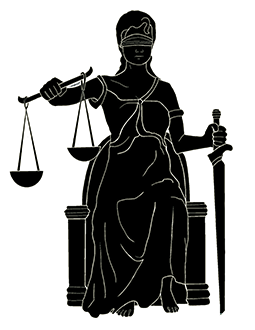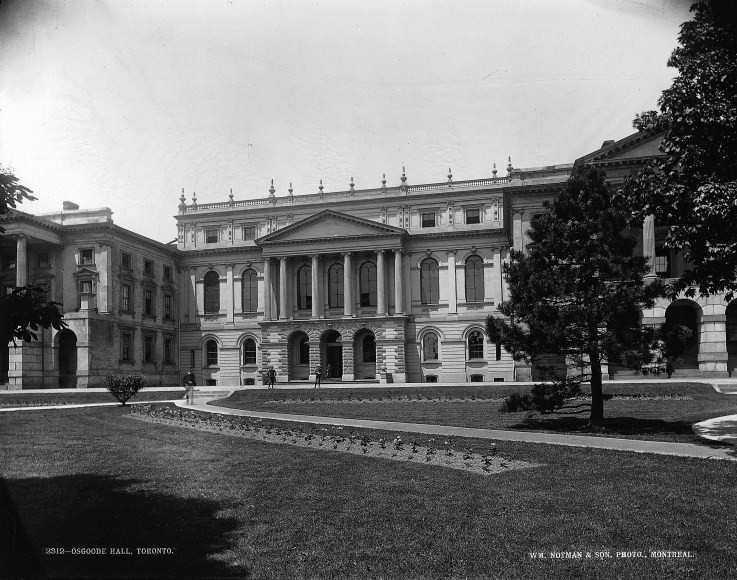
Osgoode hall
season location
Season 1 – extradition: the case of John Anderson
SYNOPSIS:
Time Frame: 1853 – 1861
Topic: Racial Justice
Case: R. v. John Anderson
It’s 1860, John Anderson is a formerly enslaved man from Missouri who is accused of murdering a white man while escaping slavery. He has been apprehended in Upper Canada and, if extradited to Missouri, he faces certain torture and execution. Leading members of the black community in Toronto protest and stir Canadian and English abolitionists to action.
Robert Harrison is retained by John A. Macdonald (on behalf of Canada) to uphold the integrity of the Extradition Treaty and send Anderson back to Missouri, while M.C. Cameron is retained to keep Anderson in Canada and prevent a horrible injustice.
The life of Anderson hangs in the balance. So too does the security of virtually the entire Canadian black community; because if one formerly enslaved person can be extradited to a slave state, what security do any such persons have in Canada?
Pilot breakdown




John Anderson has escaped from slavery, and is making his way through Missouri when he is stopped by plantation owner Seneca Digges. Knowing his fate if caught, Anderson flees, but is cornered by Digges and, in a desperate attempt to escape to freedom, stabs Digges. Via the Underground Railway Anderson makes his way to Detroit where, in the basement of Quaker abolitionists, he meets Uriah Wynne, another escaped enslaved man and together they plan to make their way into Canada.
Back in Missouri, due to Anderson’s actions with Digges, Anderson’s father-in-law pays a heavy price.
M.C. Cameron is being pushed to enter politics by John A McDonald while Robert Harrison is triumphantly winning cases for railway companies and monied interests. For all of his success, he is unable to curb his father’s alcoholism and other domestic issues.
We find out that Lavenia Hubbard, a black seamstress in Toronto, is creating dresses for the upper class families in Toronto including Mrs. M.C. Cameron. Lavinia is accepted by the upper classes of Toronto as her work is in great demand. However, societal racism immediately becomes apparent when her son, William, is falsely accused of stealing a white gentleman’s pocket watch.
Meanwhile, Anderson and Wynne attempt to cross the Detroit River. The waters become rough, Wynne can’t swim and the attempt at escape becomes a moment of life and death. Anderson tells Wynne about the stabbing of Seneca Diggs.
Episode 2
It’s seven years later and Wynne and Anderson are no longer friends. Anderson is arrested when Wynne reveals to the police what Anderson had told him about stabbing Seneca Digges. Harrison’s daughter Ada dies and Harrison’s father doesn’t attend the funeral. The black community in Toronto is shaken by Anderson’s arrest.A lawyer, Samuel Freeman, is assigned to represent Anderson. He is overwhelmed by the case and approaches M.C. Cameron to help him.
Episode 3
Samuel Freeman has initial courtroom success when Anderson is released from prison due to a lack of evidence. However, almost immediately Anderson is being hunted in Ontario by American slave catchers. Anderson’s pastor, Reverend Hawkins, hides him in the church as a short term solution. Harrison and his wife are distraught by the loss of their child. Then Harrison’s father dies. M.C. Cameron’s wife, Charlie, is told about the Anderson case from her seamstress Lavinia Hubbard.
Episode 4
Anderson is caught by slave catchers and held in custody in Simcoe for an extradition hearing. The black community protests his arrest. Magistrate Matthews orders that Anderson be brought to Brantford so he can conduct the extradition hearing himself. Reverend Hawkins hears of this and sends word to Freeman. However Anderson is unable to have any visitors on Matthews orders. Freeman is overwhelmed by the case and approaches M.C. Cameron to help him. M.C. Cameron assures Freeman that he can handle the case and declines to act as co-counsel.
Episode 5
A hearing is conducted in Brantford by Magistrate Matthews. Matthews demonstrates a highly racist attitude. Witnesses from Missouri are called to give evidence, including Benjamin, the son of Seneca Digges who was present at the time of the stabbing. When asked to identify Anderson, we learn about what really happened during the day of the stabbing. Despite the admission of inadmissible evidence, Matthews finds that Anderson should be extradited to Missouri. Lavenia steps out of her role as a mere seamstress and addresses the plight of John Anderson with both Mrs. Cameron and Mrs. Harrison.
Episode 6
The case of John Anderson is a cause celebre throughout Canada, in America and in the United Kingdom. Mosely Hubbard, who works for The Globe, urges George Brown to publish as much as they can about Anderson’s story, in order to generate public support and convince John A. Macdonald not to sign the extradition order. John A Macdonald, sensing the public mood pays Samuel Freeman’s fees to bring the matter before the Court of Queen’s bench and then instructs Harrison to lose the case on purpose. These instructions are contrary to Harrison’s competitive nature. Freeman again seeks to persuade M.C. Cameron to be co-counsel on the case with him. M.C. again declines.
Episode 7
Anderson is transferred to Toronto to have the case heard before the Court of Queens Bench. As it is evident that the hearing is going poorly Anderson seeks permission to speak on his own behalf. A few weeks later a decision is rendered. It is ordered that Anderson be extradited. The black community protest outside Osgoode Hall. Lavenia speaks to Anna Harrison about the injustice caused by Robert Harrison’s advocacy. Anna agrees and there is a rift in the Harrison household. Charlie Cameron convinces M.C. Cameron to be co-counsel representing Anderson. He obtains an order for a writ of habeas corpus from the Canadian Court of Common Pleas. British abolitionists, outraged by the judicial decision and seeking to avoid Anderson’s extradition, obtain a habeas corpus order directing that Anderson be sent to London, England. The English order is seen as an affront to Canadian sovereignty and the fate of John Anderson ceases to be the focus of public attention.
Episode 8
The British writ of habeas corpus is delivered by ship to Toronto harbour. William Hubbard, the son of Mosely and Lavenia’ is the telegram boy who receives the British writ and delivers it to the Canadian abolitionists. There is a race to serve the Canadian and the British writ which will determine whether Anderson’s case will be finally be determined in Canada or Britain. Anderson is brought to the Canadian Court of Common Pleas and M.C. Cameron is successful in demonstrating a fatal flaw in the indictment against Anderson. Harrison, mindful of the instructions of John A Macdonald concedes the point and Anderson is freed.

Eliza campbell
season 2 character
Season 2 – adultery: the case of Eliza Campbell
SYNOPSIS:
Time Frame: 1873 – 1876
Topic: Marriage, divorce and adultery
Case: Campbell v. Campbell
At 9:00 in the evening, August 26th, 1873, two men walk up to the home of Robert and Eliza Campbell. They quietly open the gate, enter the grounds, remove their hats and boots, and surreptitiously approach the house. There are lights on in the parlour, but the windows are all shuttered. The men position themselves beneath the windows and listen to what takes place inside. The next day it is alleged that Eliza committed adultery. Robert takes possession of his three children and physically expels Eliza from their matrimonial home. Eliza is left 6 months pregnant with her fourth child and without any financial means. Both parties retain legal counsel, Robert retains Robert Harrison and Eliza retains M.C. Cameron. What follows are multiple trials where Eliza tries to defend her honour and the legitimacy of her unborn child, all the while fighting the societal norms of what it is to be a woman in Victorian times.
M.C. Cameron: The evidentiary standard in adultery cases does not require eyewitness testimony of the act. All that must be proven is that you had opportunity.
Eliza: A married woman alone in a room with an unmarried man constitutes adultery?
M.C. Cameron: Precisely.
“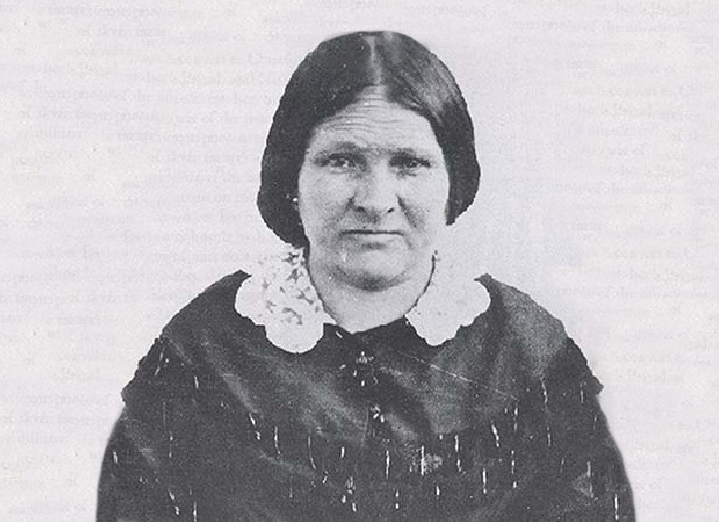
Miyo Nipay
season 3 character
Season 3 – indigenous marriage: the case of MiyoNipay
SYNOPSIS:
Time Frame: 1803 – 1867
Topic: Recognition of the Validity of Aboriginal Law, Customs and Culture
Case: Connolly v. Woolrich
In 1803, a fur trader, William Connolly, marries Miyo Nipay (English name: Suzanne Pas-de-Nom) the daughter of a Cree chief. The marriage is conducted in accordance with the customary law of the Cree people. After almost thirty years of marriage and six children, Conolly has become enormously wealthy. Abruptly and without any divorce or annulment of his marriage to Miyo, Connolly marries Julia Woolrich, a white woman in Montreal and they have two children. Connolly dies leaving his enormous estate to Julia, his second wife. Miyo’s eldest son, launches a court battle to secure Connolly’s estate for his mother. M.C. Cameron fights for the recognition of the Cree marriage, Harrison argues that the Cree “country marriage” has no validity and that the law should only recognize a Christian marriage conducted in a church and registered with the state. To whom go the riches?
Witness for the Plaintiff: They married according to the custom of the country, which was an agreement between the father of the girl and the man seeking to marry her.
Witness for the Defence: he was nothing but a purchased Cree concubine. The custom contended for is barbarous and pagan.
“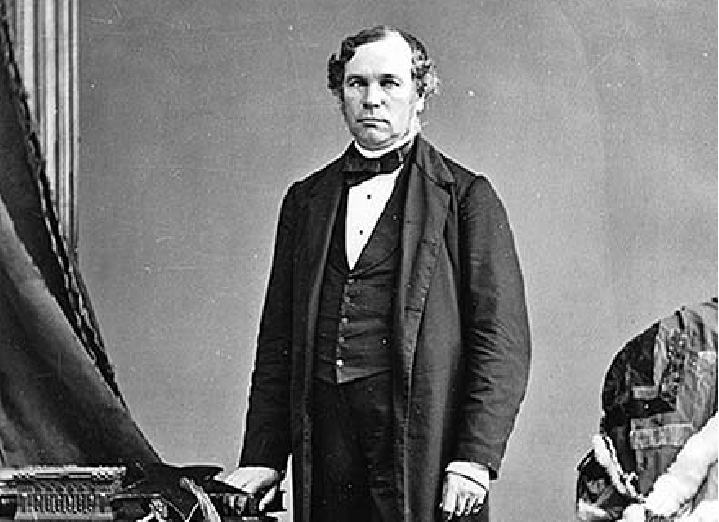
John hillyard
season 4 character
Season 4 – infanticide: the case of The Greenwood Murders
SYNOPSIS:
Time Frame: 1863 – 1864
Topic: Infanticide
Case: R. v. William Greenwood
In March 1863, Agnes Marshall, a servant of renowned lawyer John Hillyard dies in hospital. Subsequently, the body of a baby boy is found strangled and concealed in the Hillyard home. A month later the body of another servant from the Hillyard household, (Catherine Walsh) and her new born child are found in a burning building, but the deaths appear to be from strangulation. William Greenwood, the extraordinarily charismatic gardener of the Hillyard home, is charged with multiple murders and arson. M.C. Cameron believes in the innocence of Greenwood and accepts a retainer to defend him. Harrison acts for the prosecution. This case tests M.C. Cameron’s ethics to the breaking point.
Butler: He told me that Catherine Walsh had been interfering in his business so he slapped her so hard across the mouth that he knocked her tooth out. He showed me the tooth and the mark on the ceiling where the tooth struck when he knocked it out of her mouth.
Female Admirer: I don’t believe Mr. Greenwood is capable of any such thing. When I heard he’d been arrested, I went to the station to see him, I went into his cell and, I admit it, I kissed him.
“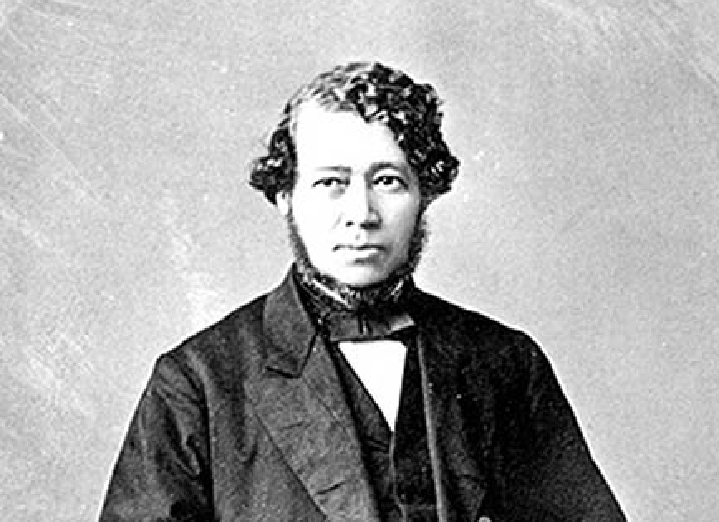
T. d’arcy mcgee
season 5 character
Season 5 – assassination of t. d’arcy mcgee: the case of Patrick Whelan
SYNOPSIS:
Time Frame: 1868 – 1869
Topic: The Public’s Lust for Revenge
Case: R. v. Patrick Whelan
At 2:30, on the morning of April 7th 1868 T. D’Arcy McGee, Canada’s most eloquent politician, is shot in the back of the head at close range and killed. It is assumed that Irish Fenians are responsible. When McGee is buried six days later, more than 80,000 people attend his funeral. Patrick Whelan, an Irish, Catholic, immigrant with Fenian associations is arrested and charged with McGee’s murder. The public is demanding Whelan’s conviction and execution. M.C. Cameron, seeks to protect Whelan from the public’s lust for blood. In an atmosphere of revenge, intolerance and hatred Cameron tries to convince the jury of Whelan’s innocence. Harrison, on the other hand (working closely with Sir John A. Macdonald) is determined to see Whelan hung.
M.C. Cameron: Gentlemen of the jury, you have in your hands the prisoner’s life or the prisoner’s death. I ask you to remember one thing. Everyone here seeks justice, but no one should thirst for vengeance.
Patrick Whelan: I’m accused of being a Fenian. If a poor Irishman dares lift his voice in favour of Irish liberty he is liable to be caught, hanged, drawn and quartered. I am innocent. I never took that man’s blood. I never owed him spite.
“